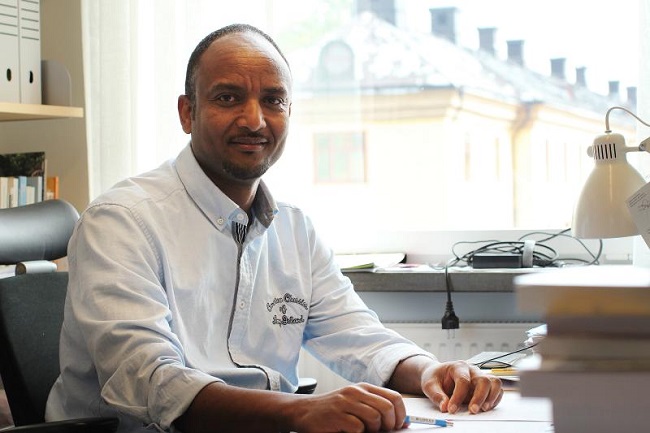Crucial to link Ethiopian farmers to markets

Beyene says Ethiopia has done little to link farmers to the market
Ethiopia is facing a drought which, while not as horrific as the 1994 famine, is serious enough to leave millions in need of food aid. A key to achieving long-term food security in Ethiopia is making the country’s smallholder farmers more market-oreinted, says Nordic Africa Institute (NAI) researcher Atakilte Beyene.
The devastating drought was precipitated by the worst El Niño in many years. With 80 per cent of the population relying on agriculture for their livelihoods, Ethiopia is highly dependent on rainfall.
Even a farmer with 100 cattle is vulnerable when rain fails, Beyene explains.
“But if the farmer has the conditions for a commercial mind-set, thinking not only about the number of cattle but also about the profit from each animal, that makes a huge difference. Then he might invest, for instance in a borehole, and develop his farm. Underground water is quite abundant, studies suggest. If rain fails one year, the farmer can still get by”, says Beyene.
Ethiopia has made great economic progress in the last 10-15 years, but many farmers could still easily fall into the poverty trap. To withstand future climate shocks, Ethiopia must adopt a broad agenda, Beyene says.
“The solution will not be found in agriculture alone: the service and industrial sectors must be involved as well. The Ethiopian government has made significant investments in building road and irrigation infrastructure in the countryside, but little has been done to link farmers to the commercial market.
“The policy discussion has largely been about how to increase yield, while the post-harvest constraints has not been given much attention.”
Beyene says that linking smallholders to emerging industries such as beverages, textiles and leather has becoming critical in addressing farmers’ long-term food security concerns.
Strengthening farmers’ land rights and land consolidation among the rural people; and creating space for private-sector investment are other important conditions in helping farmers to become entrepreneurs so that some of the rural producers become integrated with the emerging industrial and urban demands for agricultural products.
“With 60-70 million people depending on agriculture, it is difficult to lift everyone out of poverty, but by linking farmers to the emerging high-value markets you could make a lot of progress.”

